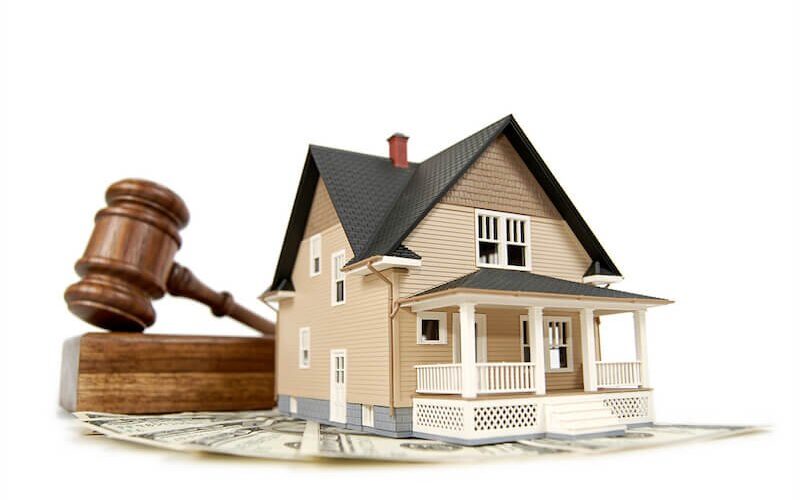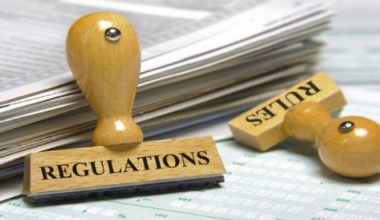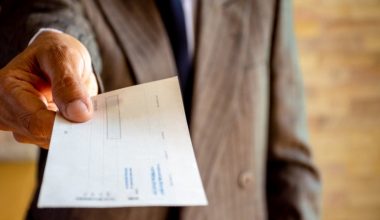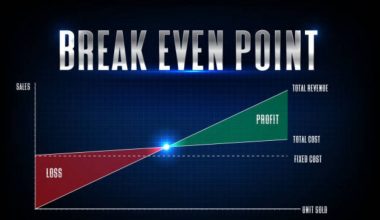A lien is a notice that a creditor has placed on your house claiming that you owe them money. Generally, the lien ensures that when the sale of the house takes place, remortgage, or repossessed, the proceeds will be utilized to repay the creditor. Likewise, a judgment lien permits a person or organization to seize property. Or take legal action against the owner to pay back unpaid obligations. This article will provide you with everything you need to know about what it means to put a lien on a house, a mechanic’s and tax lien as well as the process of putting a lien on a house.
What Is a Lien on a House
A lien is a claim against a house for unpaid bills. A lien on a home’s title prevents the owner from legally selling, refinancing, or otherwise transferring ownership. However, Only some debts can result in real estate liens. These debts range from unpaid maintenance as well as improvement costs to overdue mortgage loans and taxes.
A lien on a house notifies the public that money owed to creditors is owed against it. A lien isn’t always a terrible thing. There are various sorts of property liens. For instance, a mortgage is a type of lien on your home. However, some liens are severe and as such, you should pay them as quickly as feasible.
In other cases, a lien on your house can affect your ownership rights. A lien on a house restricts what an owner can do with their home because a creditor has the right to be paid.
How to Put a Lien on a House
If someone owes you money and they do have not to pay you, there are numerous options to choose from. You can put a lien on the debtor’s house. Unpaid debts prevent the debtor from refinancing after the lien is set. Nevertheless, below are the various step you need on how to put a lien on a house:
#1. Verify the Statute of Limitations
The statute of limitations for debt collection varies by state. This is why you need to go see an attorney to find out what your state’s rules are. Generally, every state has its own rules about how long you have to sue someone else for a debt you owe them. Regardless of your state, the type of debt owing is another aspect that can affect the timeliness of this procedure. Nevertheless, the very first step in this legal process is to understand the statute of limitations.
#2. Make a Legal Claim
Subsequently, is critical to file a case against a debtor in the appropriate court. Meanwhile, you need to know that not all state courts will be able or have the authority to grant specific requests. It is however recommendable that you chose to file in small claims court. This is if you happen to be claiming a little sum of money. Also, filling in a small claims court in the jurisdiction of the property is another thing you need to make sure of.
#3. Present Court Documents
Normally, the right way to alert someone of upcoming litigation is to serve the court summons. You need to notify the person, then allow them time to react and appear at a hearing. Likewise, when they will have the opportunity to come up with a response or defense in the case. Failure to properly serve the court papers and provide the individual with an opportunity to respond could have a significant impact on the outcome of the case. The debtor may then have grounds to ask the court to overturn your victory. A debtor might be notified in person as well as through a certified or registered letter.
#4. Make an Appearance in Court.
When attending the court hearing, bring with you any evidence you may necessarily matter to the court hearing. For instance, a written agreement between both parties agreeing on a payment or contract price. This could come out as the proof you need. Meanwhile, if somehow the defendant fails to appear in court or maybe the judge determines in your favor, the court can enter a judgment in your favor for the sum owing. After this, you can then obtain an Abstraction of Judgment. This is a certified duplicate of the judgment that verifies its validity.
#5. Lien on the Record
Subsequent to the judge’s verdict, recording the Abstract of Judgement against the debtor’s property is one of the very last processes. This procedure will vary from state to state. However, you might need to register this document with the Secretary of State’s office. Or maybe the local land records office in certain states. Thus, the lien will be on the house as a result of this.
What is a Mechanic’s Lien on a House
A mechanic’s lien is a claim against a house or other property investment. Generally, private contractors and suppliers utilize a mechanic’s lien on a house to collect unpaid invoices. Nevertheless, this is a way to get paid for house remodeling or improvement projects. In the event of a liquidation, the lien assures that the workers get their payment first. It also ensures payment to builders, contractors, and construction firms.
In terms of investment, a mechanic’s lien on a house often has a higher priority than other debts. Meanwhile, a foreclosure or repossession decides the priority of claims.
A mechanic’s lien on a house has its roots in early American history. Thomas Jefferson created the lien to create a landed gentry in the new republic. A mechanic’s lien let Americans commercialize their land, and houses and also establish farms. However, the lien is called a mechanics lien because back then construction employees were called mechanics
A mechanic’s lien can hit you even if you didn’t skip a payment. A material supplier can place a lien on your house to recoup money owed to them if, for instance, the general contractor does not pay for the bathtub. And as such, when subcontractors, laborers, or suppliers did not get their payment, the homeowner is accountable.
Surprisingly, it doesn’t matter if the general contractor has already gotten the payment for the bathtub from you. If the general contractor decides not to pay the subcontractors. They might nevertheless sue you and the property they renovate which is your house. In other words, mechanic’s liens can force you to pay for services twice or sell your home. Therefore, learning how they work as well as how to avoid them is critical.
Mechanic Lien in Play
Generally, a mechanic’s lien can be used to cover unpaid labor and material charges. However, it varies by state and what costs can be part of a mechanic’s lien. Also, keep in mind that depending on when the work takes place. Or when the contractors complete the construction. On the other hand, there may be time limits for filing a mechanic’s lien.
A property owner may feel pressured to resolve a mechanic’s lien quickly since a lien prevents you from selling your house. Likewise, a title search would reveal the lien to a potential buyer of the house. However, after the purchase, the new owner automatically becomes responsible for any liens on the property.
In addition, you should not confuse it with machinery or rights of ownership liens. While the former entitles the owner to file a claim against a property, the owner must as well observe the law and cannot expel tenants. Machinery lien, on the other hand, provides the owner the authority to repossess a vehicle for outstanding debts.
Tax Lien on a House
When a homeowner fails to pay a tax debt, the IRS may place a tax lien on their house. However, the tax lien can harm both the taxpayer as well as the neighborhood. Generally, a tax lien allows the federal government first claim to the house or proceeds from its sale. Likewise, the IRS can confiscate and at the same sell the house. This will however make it more difficult for owners to manage.
In addition, a lien stops the owners from selling their house and also makes refinancing their mortgages challenging. As such, homeowners may need to pay excessive interest costs. And also be unable to sell their home, and face foreclosures. Foreclosures reduce house prices, deter expenditure, and also exacerbate other issues linked with unoccupied and derelict housing.
What is a Tax Lien
A tax lien is a legal claim on the property of someone who hasn’t paid their taxes. If a landowner or homeowner fails to pay property taxes, the city or county where the property is located may place a lien on it. The lien is a legal claim against the house for unpaid debt. Tax liens prevent the owners from selling or refinancing their house from being not until they pay their taxes.
Generally, the municipality issues a tax lien certificate reflecting the outstanding balance on the house plus additional interest or penalties applicable. The highest bidder gets these certificates. Tax liens can be purchased for as little as a few hundred dollars for modest properties. But most are much more.
What to Do About a Tax Lien on a House
Tax debtors with tax liens on their houses have alternatives. Taxpayers can apply for a Certificate of Subordination of Federal Tax Lien from the IRS. The federal government’s stake in the property trumps other creditors, such as the mortgage holder’s bank. If this application gets approval, a property owner may be able to refinance their mortgage. A refinance can lower monthly mortgage payments.
Furthermore, a taxpayer can ask the IRS to release a tax lien, allowing the sale of a house. A discharge removes the lien from the specific property being sold and establishes a lien on other property owned by the taxpayer. Lien-free property sells faster.
Taxpayers who are unable to pay taxes debt may be eligible for an “Offer in Compromise” (OIC). An OIC is a tax debt settlement attempt with the IRS. So, if the IRS approves the settlement offer, the taxpayer’s debt and property liens are erased.
Putting a Lien on a House
Putting a lien on your house isn’t always a bad thing. They are common throughout the house purchase process, and almost all homeowners have one. If you default on a mortgage, the bank that financed it may have a legal claim to your property. But not all home liens are the same. Some can even harm your credit score and future finances. Those are awful liens. So, do liens hurt homeowners?
Do Lien Hurt Homeowners
Basically, it goes both ways. Nevertheless, we can start by saying it does not hurt homeowners. Residential mortgage liens are automated and may not be related to your repayment history. Likewise, this voluntary lien is usually on every mortgaged home. As such, this shouldn’t be a problem for you as far as you pay your mortgage as at when due. You just need to pay off your house and the lien will be eliminated.
On the other hand, agreeing it hurts homeowners. Some other lien is harmful to homeowners. Generally, a lien signifies an unpaid obligation that has resulted in legal action. A lien does not transfer ownership of the house. Although it might look like it actually is. This, however, is if the creditor follows through.
This can lead to disaster. If unpaid property taxes are the cause, the property may be confiscated and auctioned. This isn’t as prevalent as it seems. Most lienholders may decide to wait for the homeowners to pay the debt. Or maybe put up the property for sale before foreclosing.
A lien, on the other hand, benefits creditors or workers. Because liens safeguard their rights. It helps them get the payment for the work they do for homeowners.
Conclusion
Having a lien on your house is not entirely as bad as it seems. While a voluntary lien is harmless, an involuntary one, on the other hand, drastically restricts your options. And may also end in your loss of ownership if you did not handle it in time.
Lien on a House FAQs
How Do You Get a Lien Off Your House?
The easiest way to remove a lien is to pay the outstanding debt, either in full or by agreeing to a payment plan.
What happens if you buy a house with a lien on it?
As a general rule, you can’t purchase a home with a lien on it because homeowners usually aren’t allowed to sell it, and most mortgage companies won’t approve a loan for this type of home. If a buyer purchases a foreclosed home, it is their responsibility to pay the lien.
How do you know if there’s a lien on your house?
Your local secretary of state or county clerk keeps property records information and can provide these details. You can typically search for this information online.
Does tax lien affect credit score?
Tax liens, or outstanding debt you owe to the IRS, no longer appear on your credit reports—and that means they can’t impact your credit scores






